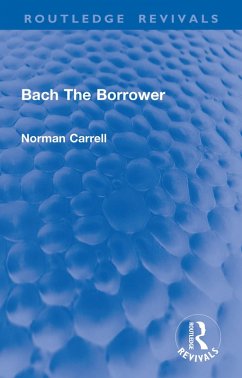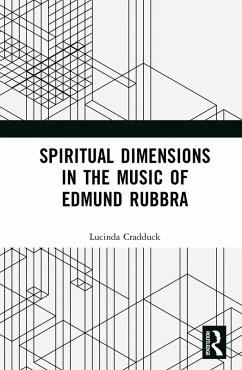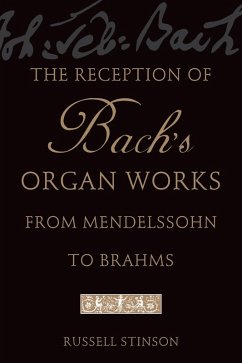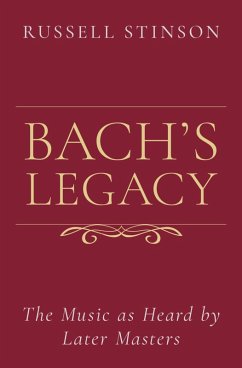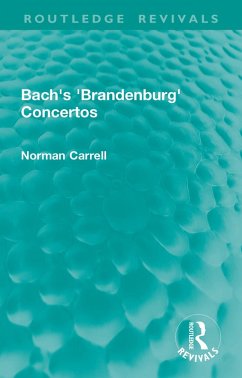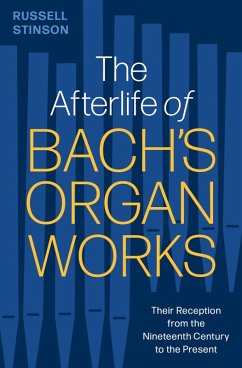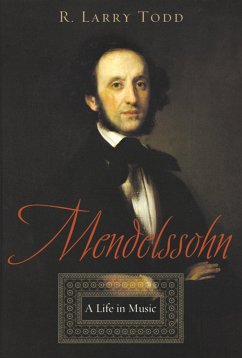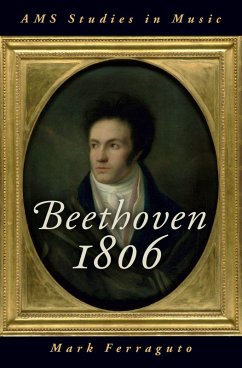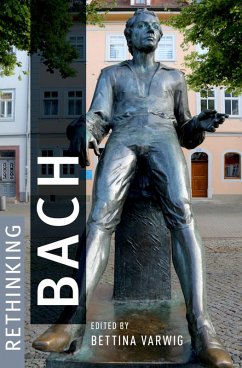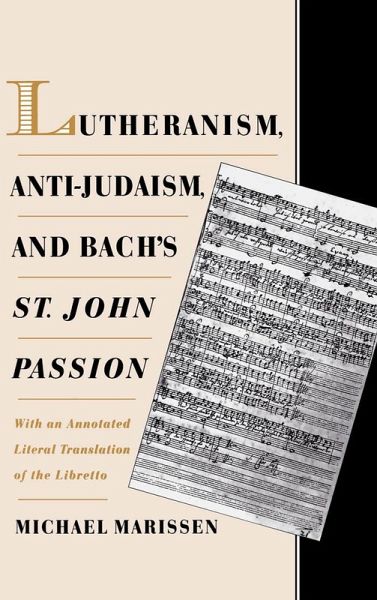
Lutheranism, Anti-Judaism, and Bach's St. John Passion (eBook, PDF)
With an Annotated Literal Translation of the Libretto
Versandkostenfrei!
Sofort per Download lieferbar
24,95 €
inkl. MwSt.
Weitere Ausgaben:

PAYBACK Punkte
12 °P sammeln!
Bach's St. John Passion is surely one of the monuments of Western music, yet performances of it are inevitably controversial. In large part, this is because of the combination of the powerful and highly emotional music and a text that includes passages from a gospel marked by vehement anti-Judaic sentiments. What did this masterpiece mean in Bach's day and what does it mean today? Although bibliographies on Bach and Judaism have grown enormously since World War II, there has been very little work on the relationship between the two areas. This is hardly surprising; Judaica scholars and culture...
Bach's St. John Passion is surely one of the monuments of Western music, yet performances of it are inevitably controversial. In large part, this is because of the combination of the powerful and highly emotional music and a text that includes passages from a gospel marked by vehement anti-Judaic sentiments. What did this masterpiece mean in Bach's day and what does it mean today? Although bibliographies on Bach and Judaism have grown enormously since World War II, there has been very little work on the relationship between the two areas. This is hardly surprising; Judaica scholars and culture critics focusing on issues of anti-Semitism commonly lack musical training and are, in any event, quite reasonably interested in even more pressing social and political issues. Bach scholars, on the other hand, have mostly concentrated on narrowly defined musical topics. Strangely, therefore, almost no scholarly attention has been given to relationships between Lutheranism and the religion of Judaism as they affect Bach's most controversial work, the St. John Passion. Through a reappraisal of Bach's work and its contexts, Marissen confronts Bach and Judaism directly, providing interpretive commentary that could serve as a basis for a more informed and sensitive discussion of this troubling work. Consisting of a long interpretive essay, followed by an annotated literal translation of the libretto, a guide to recorded examples, and a detailed bibliography, this concise text provides the reader with the tools to assess the work on its own terms and in the appropriate context.
Dieser Download kann aus rechtlichen Gründen nur mit Rechnungsadresse in A, B, BG, CY, CZ, D, DK, EW, E, FIN, F, GR, HR, H, IRL, I, LT, L, LR, M, NL, PL, P, R, S, SLO, SK ausgeliefert werden.




